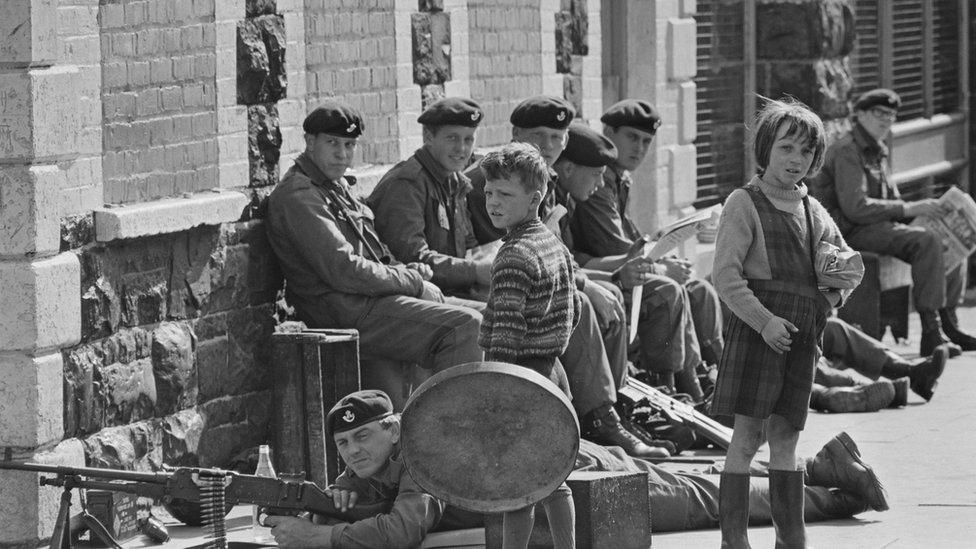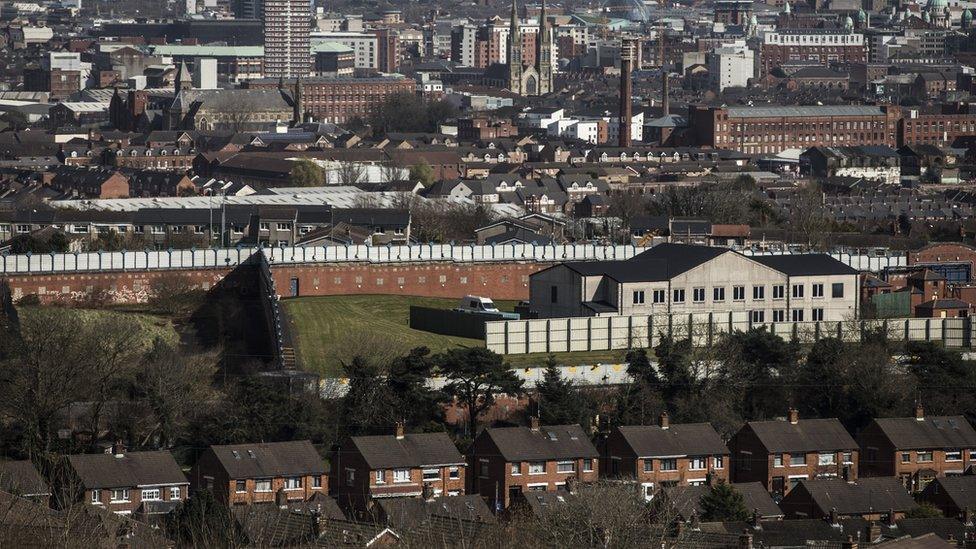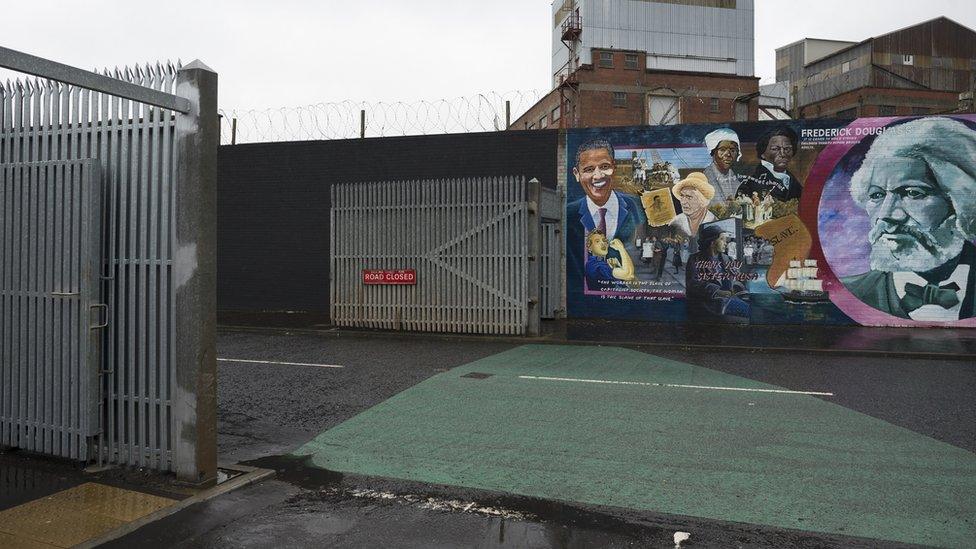The Troubles: Dealing with past is priority for future
- Published

Soldiers on the streets of Northern Ireland in August 1969
"Everything has changed and nothing has changed" could sum up the week Northern Ireland looked back on the Troubles.
Images of riots and bombings - from 1969 and the years that followed - filled TV screens and newspapers.
The same place but a completely different world; one in which more than 3,500 lost their lives.
Yet division remains, as evidenced by an updated report on the so-called peace walls, external which separate ordinary Protestants and Catholics.

Peace walls were erected in the turbulent days of the Troubles
As many as 116 of these walls, or tall fences, still exist in Belfast and beyond, according to the Department of Justice.
They were erected from the turbulent days of August 1969 onwards.
A few have come down and the report re-affirmed a goal of having them all removed by 2023.
Progress has been slow and not confined to walls.
Dealing with the past remains an unsettled issue - even 21 years into the peace process. It impacts on everyday politics and policing.
Legacy measures agreed five years ago are parked, awaiting, it would seem, an introduction at some point into the talks to revive Stormont.
However, there is a danger they could unravel.
The government used the 50th anniversary of troop deployment to Northern Ireland to repeat its desire to introduce legal protections for Army veterans.
The DUP backs the move which, if carried through to legislation, would wreck nationalist support for what was previously agreed on legacy.

Iron gates between the Falls Road and Shankill Road in Belfast
The week in which Northern Ireland looked back illustrated there is no agreed narrative around the Troubles.
It is debatable there ever will be.
But dealing with the past remains a priority in terms of advancing reconciliation.